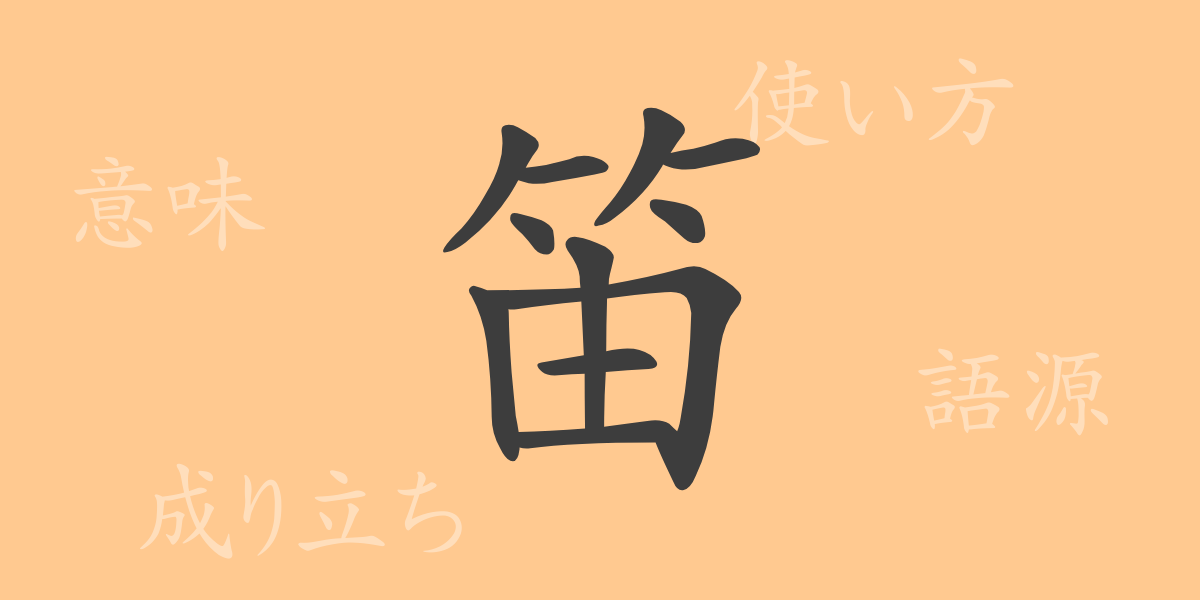The complexity and richness of Kanji deeply root in Japanese culture. Among them, the Kanji ‘笛(テキ)’ holds a special place, symbolizing spiritual aspects of the Japanese people through its beautiful tones. This article focuses on ‘笛’, exploring its origins, meaning, usage, and related phrases and proverbs, delving into the allure of this character.
Origins of ‘笛(テキ)’
The Kanji ‘笛’ originated from ancient China, introduced to Japan in the Nara period. Originally called ‘篪(チ)’, it referred to a bamboo instrument, evolving into ‘笛’ which combines ‘⺮(竹かんむり)’ representing bamboo and ‘吹’, symbolizing the action of blowing. This composition illustrates wind instruments made from bamboo.
Meaning and Usage of ‘笛(テキ)’
‘笛’ typically refers to woodwind instruments made from materials like bamboo, wood, or plastic. These instruments produce sound by blowing into holes and changing notes through opening and closing these holes. In traditional Japanese music, instruments like the Shakuhachi and Shinobue are well-known. The phrase ‘笛を吹く(ふえをふく)’ not only refers to playing these instruments but also metaphorically means to attract or lead people.
Readings, Stroke Count, and Radical of ‘笛(テキ)’
‘笛’ has several features in its form and pronunciation:
- Readings: On’yomi is ‘テキ’, Kun’yomi is ‘ふえ’.
- Stroke Count: A total of 11 strokes.
- Radical: Bamboo (‘たけかんむり’).
Phrases, Idioms, and Proverbs Using ‘笛(テキ)’ and Their Meanings
There are many idioms and proverbs involving ‘笛’ in Japanese, reflecting its cultural significance:
- 笛を吹いても踊らず: Represents situations where efforts have no influence on others, no matter how hard one tries.
- 一寸の虫にも五分の魂: Literally ‘even a small bug has half a soul’, derived from ‘笛吹虫’ (a bug that makes a loud sound), suggesting that even small entities have their own will and capabilities.
Conclusion on ‘笛(テキ)’
The ‘笛’ has been beloved across various cultures for its enchanting appeal. Particularly in Japan, it plays a pivotal role in traditional music. The single Kanji ‘笛’ embodies deep historical and cultural narratives, reflecting the profound nature of Japanese language and thought. Through music and words, the essence of ‘笛’ continues to resonate, ensuring its preservation for generations to come.

























